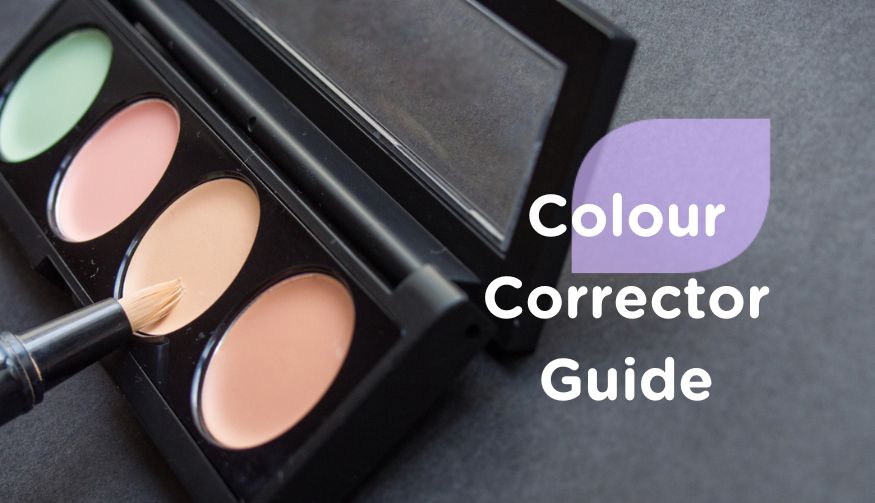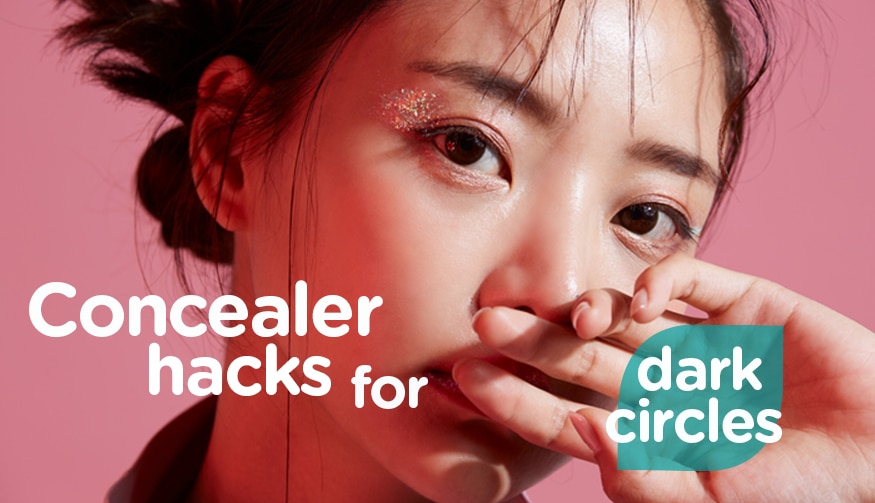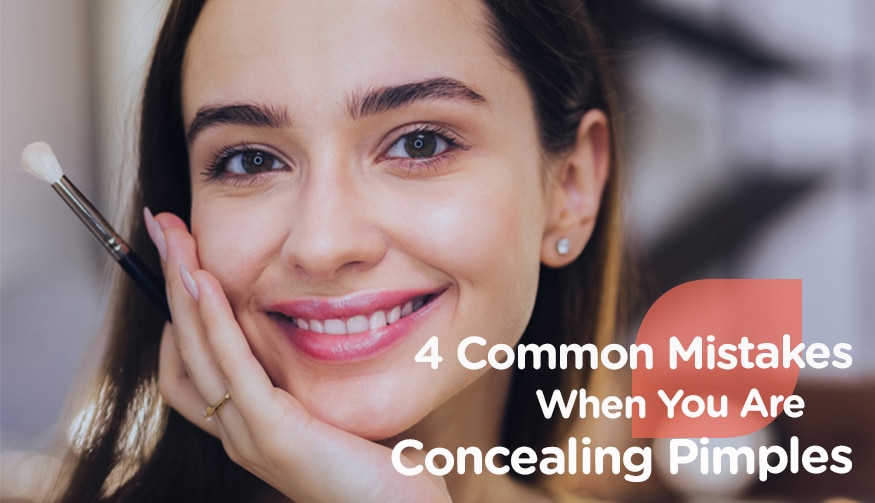Using different shades and textures of concealer can help to create a flawless complexion. Choosing the right concealer for your skin type and concerns can cover up dark circles, discolorations and blemishes. We will tell you everything you need to know about concealer.
How to choose concealer?
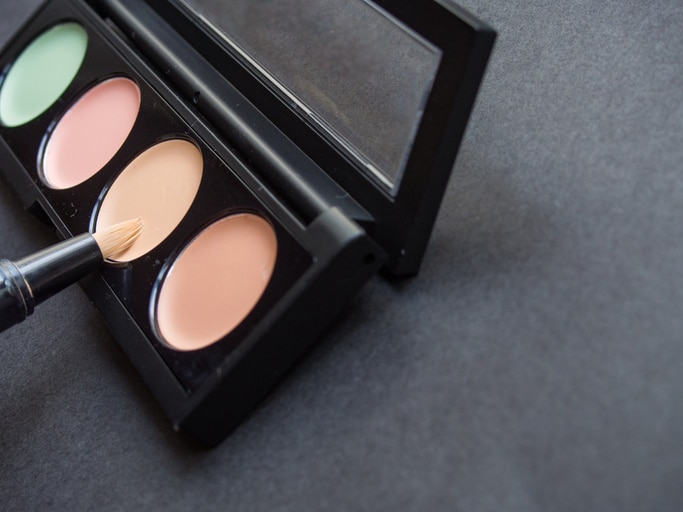
#Colours
Using different shades of colour correcting concealer can hide your various skin problems perfectly. Here is the ultimate guide to choose the right shade of concealer for hiding your imperfections.
Green concealer: For redness, acne and rosacea
Green is the opposite colour of red. Green concealer works best on hiding any redness on your face, such as acne and acne scars. If you are suffering from rosacea, a green colour correcting concealer can help cancel out the red zits and provide an even base for applying foundation.
Orange/Peach concealer: For dark circles under eyes
Orange is the opposite colour of blue. Orange concealer can conceal blue dark circles and uneven skin tone under eyes significantly. For the people with light or pale skin tones, they can apply a peach colour correcting concealer instead to cover up blue, green, and purple dark circles.
Yellow concealer: For dark purple bruises, veins, and under-eye circles
Yellow shade of colour correcting concealer can be used to minimize all blemishes like bruises, veins, and under-eye circles in purple tone.
Purple concealer: For brightening yellow skin tones and dull complexion
Purple colour concealer is the best colour to brighten up yellow undertones and dull complexion. It can remove yellow spots and yellow tones from your face.
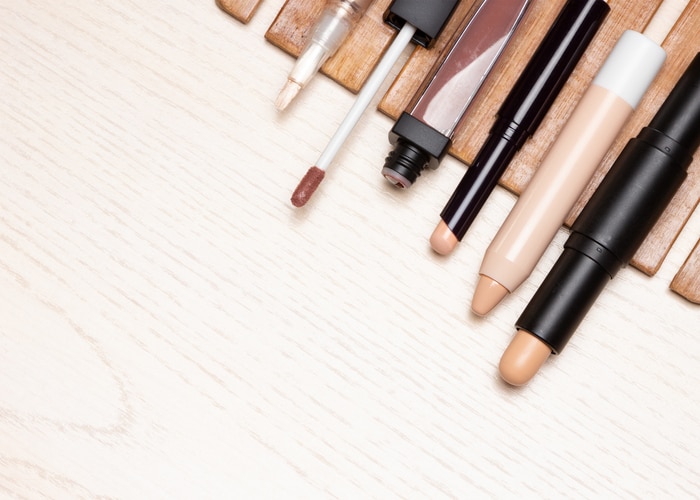
#Textures
Choose the right concealer textures based on your skin type and concerns. For example, people with dry skin should go for a creamy concealer without a matte finish to prevent dryness. Using a light to medium coverage concealer can create an even finish to hide minor skin discolorations.
Liquid concealer: For normal, oily, combination, sensitive, acne-prone skin
Liquid concealer is suitable for all skin types except dry skin. It offers thin and buildable coverage for light to full coverage. This type of concealer can create natural dewy, satin, shimmery and matte finishes. Liquid concealer also works perfectly for covering breakouts and wrinkles to avoid cakey makeup.
Stick concealer: For normal, dry, sensitive skin
Stick concealer has a thick and semi-solid texture which offers buildable coverage for medium to full coverage. This type of concealer can be dotted on or swiped on blemishes and then blend and feather the edges into surrounding skin. Stick concealer is not ideal for oily, combination and acne-prone skin as it may lead to clogged pores.
Cream concealer: For normal, dry, combination, sensitive skin
Cream concealer provides medium to full buildable coverage with satin or creamy finishes. Usually, this type of concealer is in a palette or compact packaging. Cream concealer is the best option fo under-eye circles and discolorations. You can slip a small amount of cream concealer by using a clean finger, sponge or a concealer brush on the blemishes. Remember to use loose or pressed powder to set.
How to use concealer?
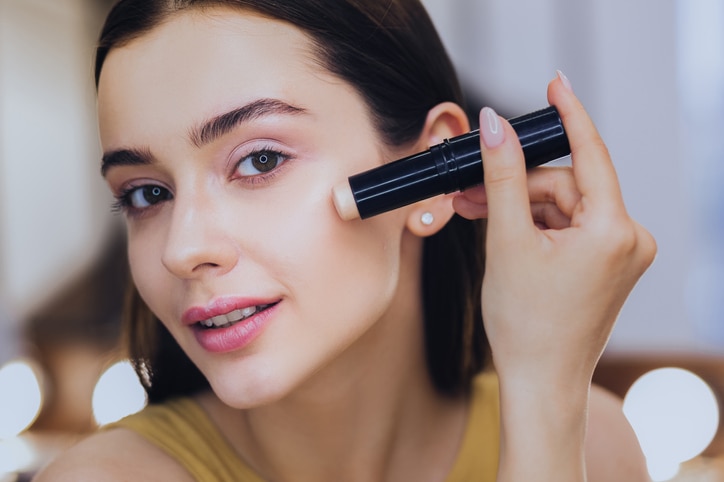
Before applying concealer, it is important to moisturize your skin first. You can layer concealer before or after applying foundation except for powder foundation. Dab a small amount of concealer on the blemishes by using a clean finger, sponge or concealer brush to build up the coverage. Then, blend out the edges gently. Finally, remember to dust loose or pressed powder lightly to set the concealer.








